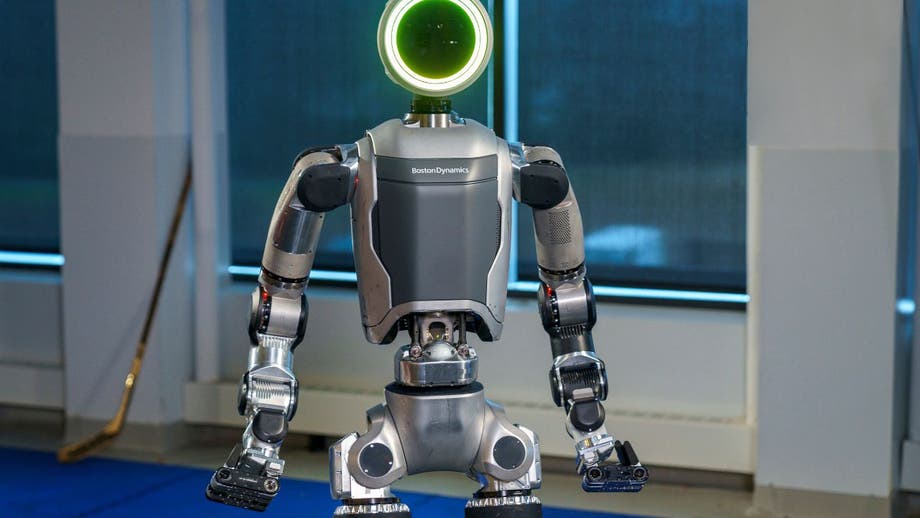Scientists have achieved a groundbreaking advancement in robotics, enabling robots to sense touch using artificial intelligence and internal sensors, eliminating the need for costly artificial skin. This breakthrough opens up new possibilities for human-robot interactions, making robots more adaptable and intuitive to use.
In a significant leap forward in robotics, scientists have developed a groundbreaking method to provide robots with a sense of touch without relying on expensive artificial skin. This innovative approach, spearheaded by a team from the German Aerospace Centre, has the potential to revolutionize human-robot interactions and enhance their adaptability and intuitiveness.

Robots Gain Tactile Sensitivity with Innovative AI and Sensor Technology
Harnessing the power of artificial intelligence, the researchers devised a system that interprets signals from a robot's existing internal sensors. This ingenious solution enables robots to accurately detect external force and pressure, mimicking the human sense of touch.
The team's concept incorporates virtual buttons, switches, and slider bars that can be positioned anywhere on the robot's structure. This flexibility empowers humans to interact with robots in novel ways, fostering more natural and intuitive communication.

Robots Gain Tactile Sensitivity with Innovative AI and Sensor Technology
The machine learning algorithms employed by the scientists have achieved remarkable accuracy, allowing the robot to discern numbers traced on its surface. This capability could pave the way for entirely new methods of human-robot communication.
The researchers envision this technology transforming human-robot interaction, rendering robots more adaptable, flexible, and intuitive to handle. As they articulate in their study, "This opens up unexplored opportunities in terms of intuitive and flexible interaction between humans and robots."

Robots Gain Tactile Sensitivity with Innovative AI and Sensor Technology
This study, entitled "Intrinsic sense of touch for intuitive physical human-robot interaction," has been published in the prestigious journal Science Robotics.
Eliminating the need for complex and expensive external sensors makes advanced robots more accessible and practical for diverse applications. The ability to interact with robots through touch, mirroring our interactions with humans, could transform sectors such as healthcare and manufacturing, opening up boundless possibilities for collaboration between humans and machines.

Robots Gain Tactile Sensitivity with Innovative AI and Sensor Technology
In a future where robots possess a sense of touch, they could perform tasks that require dexterity and precision, such as handling delicate objects or assisting in medical procedures. This breakthrough could also enhance the safety of human-robot interactions, preventing accidental collisions or injuries.
As this technology continues to evolve, it holds the potential to revolutionize various industries and aspects of our lives. From manufacturing and healthcare to home assistance and entertainment, the possibilities are endless.

Robots Gain Tactile Sensitivity with Innovative AI and Sensor Technology
The ability for robots to sense touch not only enhances their functionality but also opens up new dimensions of human-robot relationships. It enables us to interact with them more naturally, fostering a deeper connection and understanding between humans and machines.
The development of this technology marks a significant milestone in the field of robotics. It brings us closer to a future where robots are not just tools but partners, capable of working alongside us, enhancing our capabilities and enriching our lives.










